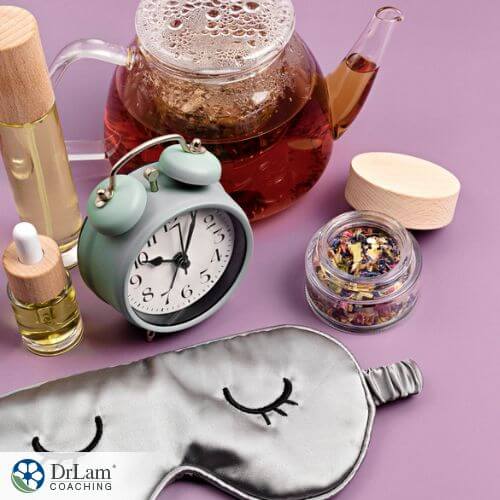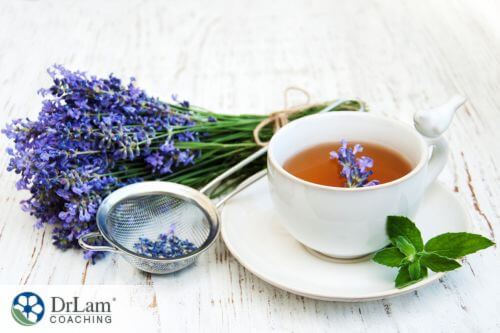 Whilst bedtime can be the favorite time of day for many individuals, it can also be a time of anxiety if you struggle to fall asleep. Although sleep difficulties can be challenging, there are many strategies that can help to induce sleep and calm your body and mind. Bedtime tea is one of these strategies. If you struggle with falling asleep or staying asleep, you may benefit from bedtime teas. They can also help with anxiety and depression, which can directly affect sleeping patterns.
Whilst bedtime can be the favorite time of day for many individuals, it can also be a time of anxiety if you struggle to fall asleep. Although sleep difficulties can be challenging, there are many strategies that can help to induce sleep and calm your body and mind. Bedtime tea is one of these strategies. If you struggle with falling asleep or staying asleep, you may benefit from bedtime teas. They can also help with anxiety and depression, which can directly affect sleeping patterns.
Bedtime teas not only help to assist in sleep but also help to relieve anxiety and improve mood. They are a gentle and natural way to fall asleep sooner and stay asleep longer.
When you think of bedtime teas, the most common tea that may come to mind is chamomile tea. This tea not only can help with sleep but can also help to reduce anxiety. The ingredient that helps to promote restful sleep in this tea is a compound called apigenin. This compound helps to bind to receptors in the brain, mainly GABA receptors. GABA is a brain hormone. When apigenin binds to these receptors, it helps to induce a calming effect. This calming effect helps to induce sleep and reduces anxiety.
Whilst this tea is a great choice, there are some side effects to be aware of. Some common side effects are nausea and vomiting. Chamomile can react with blood thinners as well as induce an allergic reaction in individuals with a pollen allergy.
This tea is a popular tea that has many benefits including weight loss, managing blood sugar levels, and helping to induce sleep. This tea contains the amino acid theanine. Theanine helps to reduce the levels of stress hormones in the blood as well as helping to reduce the activity of brain cells. It also helps to induce a calming effect on the body helping to get your body relaxed for sleep.
When using this tea, it is important to choose caffeine-free green tea, as caffeine will not aid in sleep.
The side effects of this tea include nausea, vomiting, headaches, an increase in the occurrence of sleepwalking, and an increase in the risk of anemia. However, this is more associated with excessive intake of green tea. If you are currently experiencing anemia, chat with your healthcare professional before taking this tea.
Out of the bedtime teas, this is one of the lesser-known ones. However, studies suggest that it can be a powerful tea to assist with sleep. There are multiple theories as to why valerian root helps to induce sleep, but the main theory is that it binds to GABA receptors in the brain. It also contains two compounds: valepotriates and sesquiterpenes. These two compounds are natural sedatives.
A study that assessed the use of valerian root tea found that 90% of participants reported an improvement in the time spent falling asleep as well as an improvement in the quality of sleep. Side effects of this tea include nausea, vomiting, headaches, and vivid dreams.
 This plant is more commonly used in its aromatherapy form as a spray or drops. However, it can also be sipped as a tea. It binds to the GABA receptors, helping to calm the nervous system. It also increases the production of the feel-good hormone dopamine and reduces levels of the stress hormone cortisol. This combination makes it potent for helping to promote sleep as well as reducing anxiety and stress.
This plant is more commonly used in its aromatherapy form as a spray or drops. However, it can also be sipped as a tea. It binds to the GABA receptors, helping to calm the nervous system. It also increases the production of the feel-good hormone dopamine and reduces levels of the stress hormone cortisol. This combination makes it potent for helping to promote sleep as well as reducing anxiety and stress.
Side effects of this tea include changes in appetite, constipation, and headaches. If you experience an allergy to chamomile or thyme, you may be sensitive to this tea.
This is another one of the bedtime teas that can help to induce sleep and reduce anxiety. It binds to GABA receptors, relaxing the body and assisting with sleep and anxiety. Whilst it is used for sleep, it has also been used for seizures and hysteria.
This tea can cause drowsiness and confusion with studies determining that this tea is safe to use for up to eight weeks. However, its long-term safety is uncertain.
Whilst bedtime teas contain ingredients that can help to promote sleep, bedtime teas also work as part of a healthy bedtime routine. The process of making and drinking tea can be a ritual for the end of the day that helps you relax and unwind. When this is practiced consistently, your brain will start to recognize that when you drink tea at night, it's the end of the day, and this will help prepare your body for sleep.
Chronic stress can lead to depression, anxiety, and serious trouble both falling asleep and staying asleep. This is because your body is designed to cope with short-term stress, but lon-term stress depletes your body's resources for dealing with the stress: your adrenal glands and your NeuroEndoMetabolic (NEM) Stress Response. This can lead to Adrenal Fatigue Syndrome (AFS).
Your NEM system consists of six circuits of related organs that support your body. In short-term stress, your adrenal glands release the stress hormone cortisol. However, when stress becomes chronic, this can cause your adrenal glands to become depleted and unable to keep up with the demand for cortisol. When this happens, imbalances within the NEM system arise and this can cause AFS. The symptoms that will be experienced will depend on which circuit the imbalance is occurring in.
One of these circuits is the Neuroaffect circuit which is made up of the brain, autonomic nervous system, and the gut microbiome. These three organs and systems play an important role in producing brain hormones and contribute to your mental and emotional health. Imbalances within this circuit can cause an array of symptoms that include:
Bedtime teas cannot balance this circuit. However, they can help to provide relief from these symptoms.
There are many benefits to bedtime teas, and they can help not only with sleep but also anxiety. However, whilst they can be of use, there are some cautions to be aware of if you are currently experiencing AFS.
Bedtime teas are herbal and are therefore not regulated by the FDA. This means that the safety of the ingredients used is not guaranteed. In AFS, your body can become more sensitive to any external products including teas.
If you are struggling with AFS and sleep, chat with your healthcare provider before you try any new bedtime teas. Your healthcare provider will be able to guide you on teas that are from a reputable company and ones that will support you rather than set you back in your healing journey.
Sleep is an important part of your life and when sleep challenges arise they can wreak havoc in your life. Bedtime teas can help to provide relief as well as those extra zzzs. The most popular bedtime teas include:
These teas work in different ways. However, they primarily contain specific ingredients that help to induce sleep as well as binding to GABA receptors.
If you are currently experiencing sleepless nights and changes in your mood, you can call our team at +1 (626) 571-1234 or click here for a free initial call.
Ideally, bedtime teas should be drunk one to two hours before you go to bed. This will help prevent you from using the bathroom later on in the night. To establish a calming nighttime routine, try to drink your tea at the same time every night.
